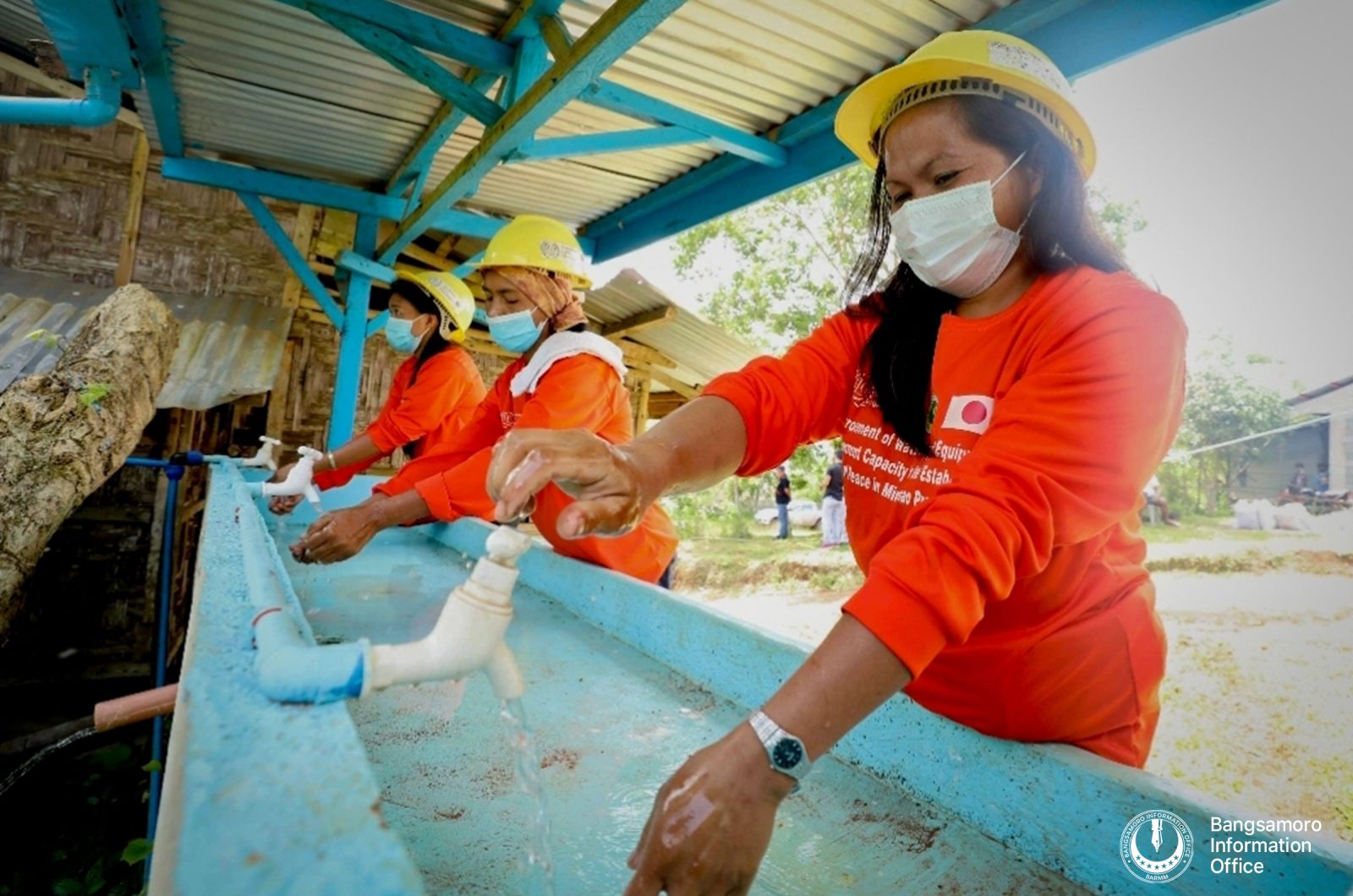COTABATO CITY – International Labor Organization (ILO) and Japan Government, in collaboration with the Bangsamoro Government’s Ministry of Labor and Employment (MOLE), continues to install Level II Water System in rural areas across the region.
On Monday, June 21, the parties handed over the Level II Water System to Looy Integrated Technical and Vocational High School (LITVHS) at Barangay Looy in South Upi, Maguindanao. A tree planting activity was also conducted in the area on the same day.
Masahiro Nakata, representative of Embassy of Japan in the Philippines, confirmed that Japan and the ILO has lined up a total of eleven (11) water systems for the Bangsamoro region. These are part of the Japan-Bangasamoro Initiative for Reconstruction and Development (JBIRD) program.
“Through JBIRD we aim to provide an enabling environment for the Bangsamoro communities and help them benefit from the dividends of peace,” Nakata said.
“We envision Mindanao particularly the Bangsamoro Region as a bedrock of peace development and stability,” he added.
Nakata also mentioned that work opportunities were made available during the construction phase of the project, involving indigenous men and women of Barangay Looy.
ILO Philippines Director Khalid Hassan said that the organization ensured that the fundamental principles and rights at working conditions, livelihood of the indigenous people are promoted as an integral part of inclusive and sustainable development.
“We have brought water close to almost 500 households from a water source estimated to be 7 kilometers away in a total of a 9-kilometer piping system has been constructed,” Hassan said.
“We are also happy to know that 1,169 students in two schools will now have safe and clean water for drinking and washing anytime of the day,” he added.
Through the years, 54% of the BARMM population do not have access to clean water. In the case of Barangay Looy, the residents need to wake up early to fetch water from a well, and the students of LITVHS are required to bring four (4) gallons of water to school everyday.
MOLE Minister Romeo Sema, chairman of the project’s Advisory and Review Committee, made sure that the 250 laborers of the project, 75 of which are women, were well treated and compensated.
“The project aims to generate productive work and employment sa pamamagitan ng pag construct ng safe and reliable water systems sa mga mahihirap at marginalized na komunidad,” Sema said.
Sema believes that the access to clean water and decent livelihood could improve the level of lifestyle of the indigenous peoples, noting that the Teduray composes the 80% population of Barangay Looy.
“Pwede itong (water system) mag bukas ng mga oportunidad para sa livelihood, safety and health at mas disenteng pamumuhay,” Sema added.
The ILO, Japan Gov’t, and MOLE have already handed over same water systems in the barangays of Timanan, Rifao and Renti in South Upi, Maguindanao and in Wao, Lanao del Sur. Similar projects will also be constructed in the provinces of Basilan, Sulu, and Tawi-Tawi. (Bangsamoro Information Office)
![]()








